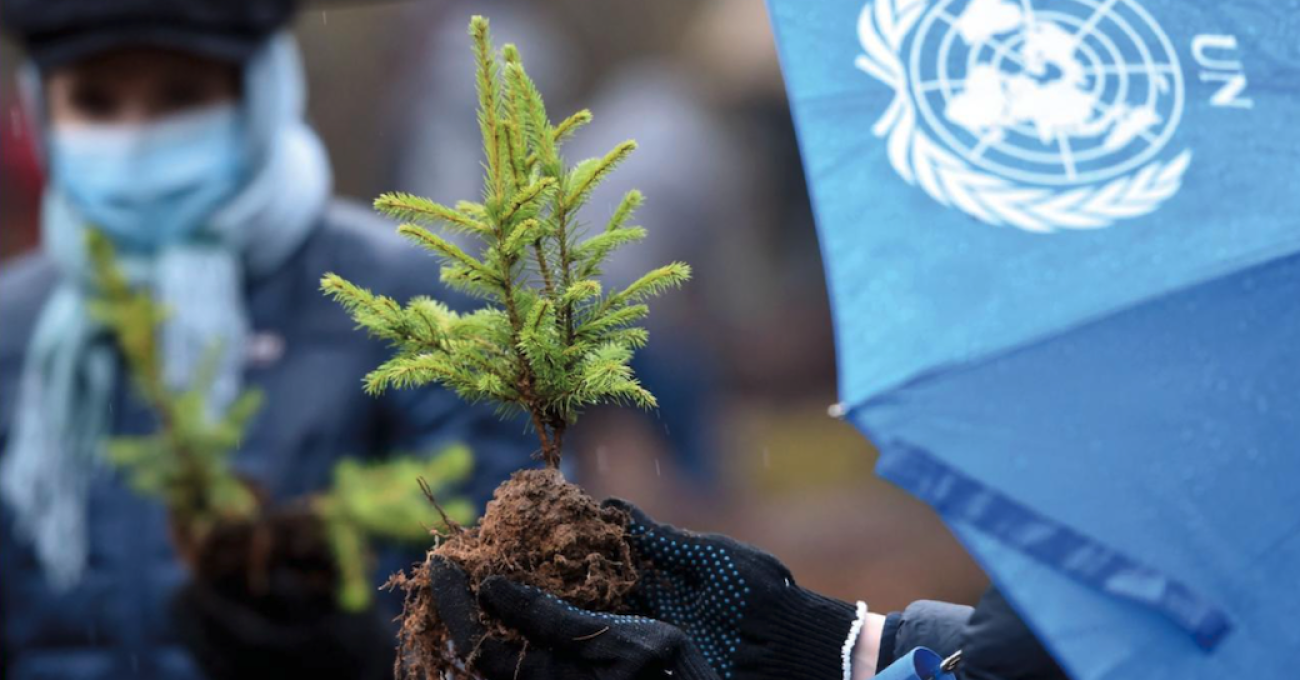Year 2020 has brought many challenges to Belarus, yet the UN in Belarus continued to deliver its programmes working on both emergency and long-term projects for the benefit of the people of Belarus. The “UN Belarus Results Report 2020” represents the multi-faceted work of eighteen UN agencies, funds and programmes that supported the development process in Belarus.
The report is the first such publication presenting a consolidated picture of the work of all UN agencies, funds and programmes delivering assistance in Belarus, including FAO, IAEA, ILO, IOM, ITU, OHCHR, UNAIDS, UNDRR, UNDP, UNECE, UNFPA, UN-HABITAT, UNHCR, UNICEF, UNIDO, UNODC, UN WOMEN and WHO.
The report illustrates the COVID-19 response, the long-term programming towards the Sustainable Development Goals (SDGs), efforts for facilitation of the government and civil society cooperation, and the engagement with the whole spectrum of society of Belarus with the focus on the vulnerable groups. It demonstrates effective partnerships and financial support, as well as sets goals for the future.
The 2020, the United Nations’ 75th Anniversary year, saw the COVID-19 pandemic shifting many UN development priorities in Belarus towards supporting the country in addressing its socio-economic impact.
Since March 2020, the UN Country Team (UNCT) has been providing continued emergency support for COVID-19 relief. WHO worked with the Ministry of Health on a needs assessment for the prioritization of medical supplies. The UN agencies assisted in the procurement of medicines and protective equipment in the framework of a World Bank loan, which helped the country weather the first waves of the pandemic. In parallel, they mobilized new grant resources and have partially reprogrammed ongoing projects to finance the procurement of basic and urgently needed medical supplies for the providers of medical and social assistance services. UN Belarus’ procurement met the needs of the healthcare and educational establishments, border services, residential care institutions of many kinds including those for elderly people, people and children with disabilities and health issues, orphanages, and baby homes across Belarus. Following the request of the government, WHO organized the COVID-19 technical mission of experts to the Republic of Belarus in April 2020 and submitted a set of recommendations.
The UN system entities in Belarus, working with national and international partners, provided some USD 7.5 million worth of emergency supplies and support to the national response to COVID-19. This includes 3 465 050 masks, 52 000 COVID-19 tests, 390 oxygen concentrators, and many more. Almost 2.3 million people were reached by messages on COVID-19 prevention within the national “Clean Trend” campaign. To seek to minimize the impact of the COVID-19, a Socio-economic Response Plan – “From Economic Shocks to Building Back Better” – was developed by the UNCT as a comprehensive offer for response and recovery measures from short, medium- and long-term perspectives.
Despite the pandemic, Belarus’ long-term engagement in progressing towards the SDGs demonstrated fruitful results in some areas: adoption of the legislation reducing the use of single-use plastic and ensuring collection of waste; restoration of inefficiently drained peatlands and implementation of green economy pilot initiatives; development of the National Strategy on Active Longevity 2030; development of a network of early intervention centres of the Ministry of Health; and partial decriminalization of HIV transmission, to name just a few.
The aftermath of the August 2020 presidential elections revealed the lack of progress towards achieving the SDG 16: Peace, justice and strong institutions. The UN promoted universal values and dialogue and cross-sectoral partnerships for sustainable development. However, the weakening of the human rights and rule of law protection mechanisms, shrinking civic space, continues to impact the ability of Belarus to meet its international obligations and achieve its development goals.
The UN in Belarus has also set a specific focus on women’s rights in 2020 and was engaged in drafting the sixth National Action Plan for gender equality (2021-2025) and advocating for new solutions to old problems – traditional gender roles and stereotypes, growing gender pay gap, need for gender-responsive healthcare, and gender gap in life expectancy.
2020 was the last year of the implementation of the UN Development Assistance Framework 2016-2020 (UNDAF), a programme that, over the five years of implementation, attracted and delivered USD 85 million of international assistance to Belarus in the areas of governance, economic development, environmental sustainability, and human capital development.
All the above would not have been possible without the longstanding and newly emerged partnerships with government, civil society organisations and private business that all contributed to the benefit of the Belarusian people.
Main donors that provided funding to support the UNDAF in 2020 included the European Union, Global Environmental Facility (GEF), the Russian Federation, USAID, Germany, Poland, UK, Norway, Sweden, Global Fund to Fight AIDS, Tuberculosis and Malaria (GFATM), the World Bank, Estonia, OSCE. The UN agencies also managed to mobilize additional resources through partnership with the private sector.
The report reflects also on the UN’s internal efforts and systematic work to ensure equal opportunities between men and women in the workplace.
“Long-term development priorities should be at the center of everyone’s attention. The innovations, investments and competition of ideas driving the ‘green’ post-Covid-19 recovery agenda – all of these require close cooperation and partnerships between the government, private sector, academia, the non-governmental organisations, the media and donors. Belarus needs such partnerships more than ever and the UN is ready to facilitate such cooperation,” says Joanna Kazana-Wisniowiecki, the UN Resident Coordinator in Belarus.
The UN Belarus Results Report 2020 is also available in Belarusian.















